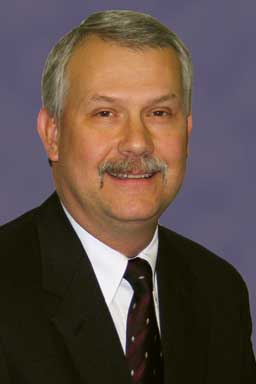My column for this issue took an abrupt turn in subject matter right in the midst of writing it. I began to write about my experiences at the 2011 National FFA Convention in Indianapolis, Indiana. The AASV has had a booth in the FFA Career Show for several years now. Total convention attendance was 53,358. Everywhere you looked, there were kids in blue coats. Beyond their apparel, these students also displayed an exuberant enthusiasm for agriculture! While watching all of this, the concept of “low-hanging fruit” came to mind. As a profession and an industry, swine veterinarians and pork producers need an infusion of young men and women. What better place than the National FFA Convention to kindle a spark of interest?
As I wrote this column, however, the rumor of another undercover video of alleged abuse in a hog facility came via e-mail. It turned out not to be a new video, but rather a rehashing of an earlier one. We avoided the controversy this time, but even the threat of a video evokes a renewed fear of what it will show. My ongoing fear is that we may provide the animal rights activists with low-hanging fruit of a different sort. These activists will capitalize on each and every opportunity to negatively portray the pork industry. It is up to us to make sure that those opportunities never happen.
Over the years, great strides have been made in improving the health and welfare of pigs. I am amazed at the amount of training that takes place on the farms and the number of available resources. After working with swine veterinarians and pork producers, I know how much they care for pigs. The phrase “we care” is so much more than just a slogan. It describes a lifestyle and a commitment that are embraced by so many who raise pigs.
An idealist part of me still wants to believe that if we all just do our jobs, then the activists will leave us alone. The realist in me then interrupts my dream to rudely assert that the activists are just as committed to ending animal agriculture as we are to sustaining it. We are engaged in a battle to win the hearts and minds of those who consume pork. With 7 billion people in the world to feed, it is imperative that we continue to keep the trust of consumers.
It is difficult to describe to an outsider how much we care about pigs. It is hard to encapsulate just what it takes to raise pigs. The development and delivery of an effective message to consumers is way beyond the scope of this column, not to mention my pay scale and skills. There are those who are working on getting the message across. For me, however, the first step is very clear. We begin by making sure that there is no low-hanging fruit for the activists to pluck.
My suggestion is simple and probably not original. The message to those working on pig farms: go about your daily chores as if you are being videotaped every minute. Then assume that you will be appearing on the national news that night, as well as on the Internet. Give thought to how you will explain your actions and how you align your actions with the message of “we care.” Tell your story through your actions and daily work.
The pork industry has been my professional life for more than 30 years now. I have a deep and abiding love and respect for the men and women whose lives are devoted to the care of pigs. Raising pigs is not glamorous or easy. It is hard work that is worth doing well. Always remember that the world is a better place because of how we care for pigs. Don’t let anyone say differently!
-- Tom Burkgren, DVM

